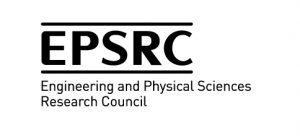Research Overview
Speech Sound Disorders (SSDs) are the most common communication impairment in childhood, affecting 6.5% of all UK children, or roughly 2 children in every classroom.
SSDs make it difficult for people to communicate with peers and integrate with society. Unfortunately, the efficacy of interventions for most types of SSDs is weak. There is therefore a need for a programme of research to enhance the evidence base for children and young people with SLCD. Our programme of research fulfils this need by developing technology which aids the assessment, diagnosis and treatment of SSDs.
Currently in Speech and Language Therapy, technological support is limited. Technologies that do exist have been expensive to run or complicated to operate and hence not adopted in clinical practice. Ultrax is a research stream which aims to address this unmet clinical need.
Beginning with the original EPSRC-funded “Ultrax” project, we have worked on developing technology to turn ultrasound into a cost-effective tongue imaging device to provide real-time visual feedback of tongue movements.
More recently, with the follow-on “Ultrax2020” project, also funded by EPSRC, we are now developing ultrasound into a tool to support Speech and Language Therapists in performing initial assessment and diagnosis of SSDs in the clinical setting.
Ultrax
Funded by EPSRC’s Heathcare Partnerships Programme – grant number EP/I027696/1 (“Ultrax: Real-time tongue tracking for speech therapy using ultrasound”).
Ultrax2020
Funded by EPSRC’s Heathcare Partnerships Programme – grant number EP/P02338X/1 (“Ultrax2020: ultrasound-based diagnostic assessment for identifying and categorising speech errors in children with SSDs”).

